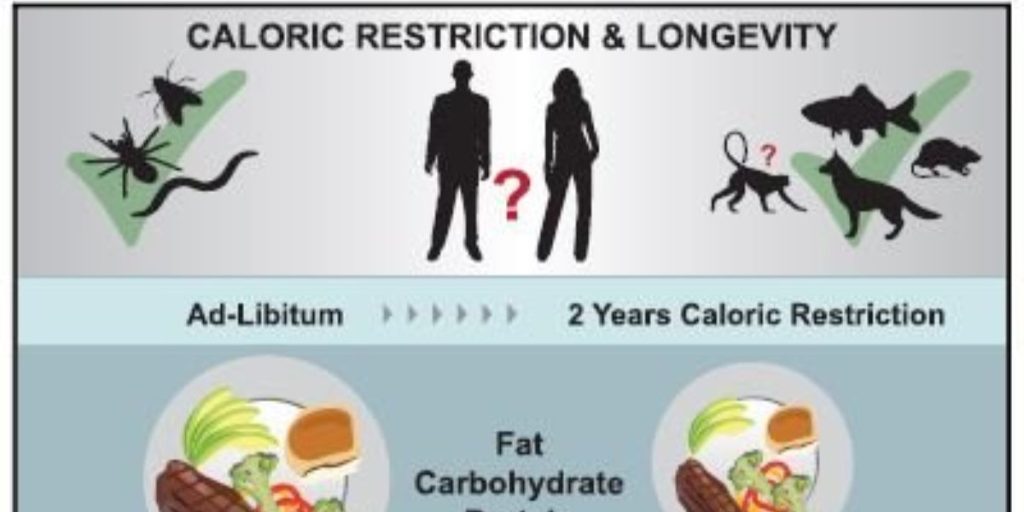Penn State researchers are presenting fresh persuasive data linking diets to aging. Their study focused on telomeres, the genetic “end caps” that protect our chromosomes, and how calorie restriction impacts them.

The scientists studied data from a two-year trial of caloric restriction in humans and published their findings in the journal Aging Cell. They discovered that those who restricted their calories lost telomeres at different rates than the control group. Despite this, both groups concluded the research with roughly identical telomere lengths. Previous research found that reducing calories by 20 to 60 percent resulted in prolonged life for a variety of species.
When a person’s cells split, some telomeres are lost as chromosomes are copied to a new cell. The cell’s telomeres are then shortened in total. The telomere cap eventually disappears as cells divide. The genetic information on the chromosome becomes more vulnerable to destruction, inhibiting future reproduction or appropriate cell function. This is known as cellular senescence.
In other words, cells with longer telomeres function like they are “younger” than cells with shorter telomeres. So, two people of the same age may have different biological ages based on telomere length.
According to Idan Shalev, an associate professor of biobehavioral health at Penn State, stress, sickness, heredity, food, and other factors can influence how frequently cells reproduce and how much telomere stays.
“There are many reasons why caloric restriction may extend human lifespans, and the topic is still being studied,” says Waylon Hastings, who received his doctorate in biobehavioral health from Penn State in 2020 and was the lead author of this study, in a press release. “One key mechanism for extending life is cell metabolism. When energy is spent within a cell, waste products from that process generate oxidative stress, which can damage DNA and ultimately break down the cell. When a person’s cells consume less energy due to calorie restriction, they produce fewer waste products and do not degrade as quickly.”
The team examined the telomere lengths of 175 research participants using data from the beginning of the CALERIE study, the first randomized clinical trial of calorie restriction in humans, as well as one year into the study and at the end over a 24-month period. Approximately two-thirds of the participants engaged in calorie restriction, whereas the remaining participants were in the control group.
The results showed that over the first year, people who restricted calories lost weight and lost telomeres faster than the control group. After one year, the participants’ weights stabilized, and the restriction was extended for another year. During year two, participants who restricted calories lost telomeres at a slower rate than the control group. After two years, both groups looked to have evened out, with no statistically significant difference in telomere lengths.

“This study demonstrates the complexities of how calorie restriction influences telomere loss. We expected that persons on calorie restriction would experience slower telomere shortening. Instead, we discovered that persons on calorie restriction lost telomeres faster at initially and then more slowly once their weight stabilized,” explains Idan Shalev.
Shalev adds that the findings have raised numerous new questions. For example, what would have happened to telomere length if data had been collected for another year? The study participants are now slated to provide data at the 10-year milestone, and Shalev says he is excited to analyze the results then. Despite the outstanding issues, Shalev believes that calorie restriction has the potential to improve human health.
Dietitians recommend calorie restriction for weight loss and improved health markers like blood pressure, blood sugar, and cholesterol. More chromosomal research would benefit nutrition and health science.
At the same time, it’s vital to remember that calorie restriction does not have to be severe. For decades, the idea that eating as little as possible is the only way to reduce weight has been a popular diet mantra. It’s really made weight loss and healthy living appear more hard than they are.
It usually only needs a minor calorie deficit to start losing weight. Even a few hundred calories (without eating one of the typical snack bars) can help the ordinary person get started. You do not need to restrict yourself to the point where you are constantly hungry, dissatisfied, or unsatisfied.